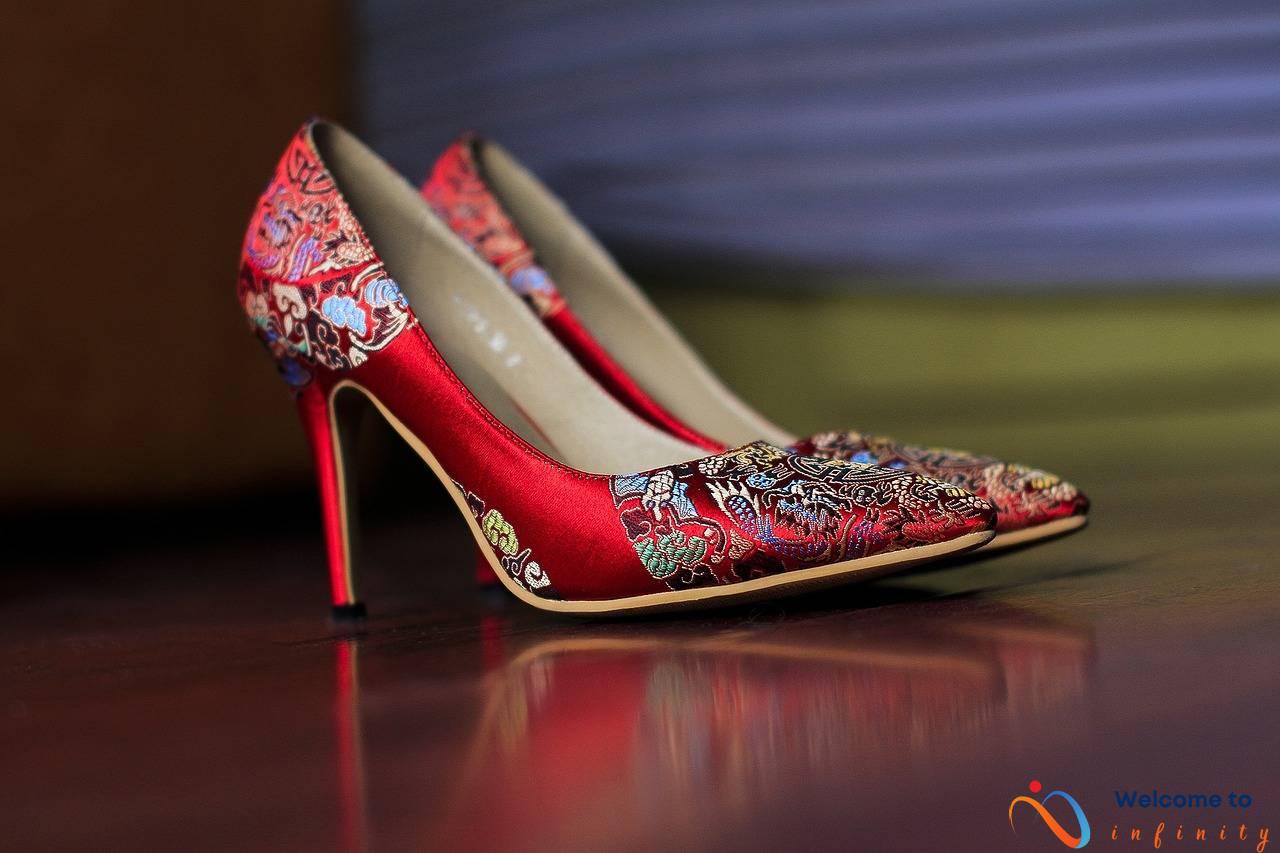Skincare is a critical part of self-care and self-love, and it's essential to have a basic understanding of what works and what doesn't. However, with so much information available, it can be challenging to differentiate between what is true and what is a myth. Here are ten skincare myths that experts have busted for you, allowing you to take better care of your skin.
This myth is entirely false. Sunscreen should be a part of your daily skincare routine, regardless of the weather outside. Sun protection is essential because UVA and UVB rays can cause skin damage and increase the risk of skin cancer. Don't forget to reapply sunscreen every few hours to ensure maximum protection.
Price doesn't guarantee quality. There are several affordable skincare products that are effective and offer just as many benefits as high-end products. It's always recommended to read the ingredients list and choose a product that suits your skin type rather than choosing a product based solely on price.
Moisturizer is essential for all skin types, regardless of whether you have oily or dry skin. A moisturizer helps to keep your skin hydrated, and it controls oil production, preventing your skin from producing excess oil. So if you have oily skin, choose a lightweight moisturizer that suits your skin to keep your face soft and supple.
While hot showers can be relaxing, they can also strip your skin of its natural oils, leading to dryness and irritation. To keep your skin healthy and hydrated, take lukewarm showers instead of hot ones. Also, try to limit your shower time to 5-10 minutes to avoid excessive dryness.
UV rays can still damage your skin even when you're indoors. Windows and artificial light can still cause skin damage, so make sure you wear sunscreen even when you plan on staying indoors for extended periods.
Exfoliation can help remove dead skin cells and make your skin look brighter. However, over-exfoliation can harm your skin's natural barrier, leading to irritation and dryness. It's recommended to exfoliate your skin once or twice a week, depending on your skin type and sensitivity level. Always listen to your skin, and if it's feeling irritated, reduce the frequency of exfoliation.
Washing your face is an essential part of any skincare routine, but washing it too much can disrupt your skin's pH balance, leading to dryness and irritation. Experts recommend washing your face once in the morning and once at night to avoid excessive cleansing.
While natural products are often marketed as safe and gentle, natural ingredients can still be irritating or harmful to some individuals. It's always recommended to patch-test a new product before using it all over your face. Also, be aware of any allergies you may have to avoid any adverse reactions.
Your skin's needs change with the weather, making it essential to adapt your skincare routine accordingly. During the colder months, your skin may require a heavier moisturizer and additional hydration. Whereas, during the summer months, lighter moisturizers may be more comfortable on your skin.
Your skincare habits can significantly affect the aging process, making it essential to take care of your skin from an early age. Incorporating anti-aging products, such as retinol, vitamin C, and sunscreen, into your skincare routine can help combat the effects of aging and keep your skin looking youthful and radiant for longer.
Myth 1: You Only Need to Wear Sunscreen on Sunny Days
Many people believe that they only need to apply sunscreen when the sun is shining bright. However, this is a major misconception. Even on cloudy days, up to 80% of the sun's harmful UV rays can penetrate the clouds and reach your skin. This is why it is so important to wear sunscreen every day, regardless of the weather.
Sun damage is one of the leading causes of premature aging and skin cancer. By applying sunscreen every day, you can protect yourself from these harmful effects. When choosing a sunscreen, make sure it has an SPF of at least 30 and is labeled as “broad-spectrum,” meaning it protects against both UVA and UVB rays.
Some people also believe that they don't need to wear sunscreen indoors. However, this is also a misconception. UV rays can still penetrate through windows and artificial light, causing damage to your skin. If you spend a lot of time near windows or under artificial light, it is important to also wear sunscreen indoors.
In addition to wearing sunscreen, you can also protect your skin from the sun by wearing protective clothing like hats and long-sleeved shirts, and by seeking shade during peak sun hours.
Remember, sun protection is crucial for maintaining healthy and youthful-looking skin. Don't let cloudy days fool you into thinking you don't need to wear sunscreen – make it a part of your daily skincare routine.
Myth 2: Expensive Products are Always Better
When it comes to skincare, many of us assume that the more expensive the product is, the better it will be for our skin. However, this is not always the case. The most expensive products may contain luxurious ingredients, but that doesn't necessarily mean they will work better than their more affordable counterparts. In fact, some budget-friendly products may even work better for your skin.
Price does not necessarily equal quality. Instead, what matters is the formulation of the product and how well it suits your skin's needs. It's important to remember that everyone's skin is different, and what works for one person may not work for another. While some people may experience great results from high-end products, others may find that their skin reacts better to drugstore buys.
It's also worth noting that some expensive products may contain fillers or fragrances that can actually harm your skin rather than help it. On the other hand, some cheaper products may contain the same active ingredients as their more expensive counterparts, just with different packaging and marketing.
Instead of focusing solely on price, look for products that contain a combination of effective and gentle ingredients that are suited to your skin's particular needs. Don't be afraid to do your research and read reviews from other consumers before making a purchase. Sometimes, the best products are the ones that come with a lower price tag.
In summary, while high-end skincare products may seem appealing, they are not always the best option for your skin. Rather than focusing solely on price, prioritize the ingredients and how well they will work for your individual skin type and needs. Remember that affordable skincare products can be just as effective as their expensive counterparts, so do your research and choose wisely.
Myth 3: Oily Skin Doesn't Need Moisturizer
Despite popular belief, oily skin still requires the use of moisturizer. Many people assume that adding moisture to already oily skin will only make it more greasy, but the opposite is true. When the skin is dehydrated, it produces more oil to compensate, leading to even oilier skin. Moisturizer helps to balance the skin's natural oil production and also provides a protective barrier to prevent moisture loss.
However, it's important to use a lightweight, oil-free moisturizer specifically formulated for oily skin. Look for products with ingredients like hyaluronic acid and glycerin, which hydrate the skin without clogging pores or causing breakouts. Avoid heavy creams or products containing occlusive ingredients like petrolatum, which can trap oil and lead to congestion.
Another myth is that oily skin doesn't need to be exfoliated, but this is not the case. Exfoliating helps to remove dead skin cells and excess oil, which can contribute to acne and dullness. However, it's important not to over-exfoliate as this can damage the skin's natural barrier and cause irritation. Stick to gentle chemical exfoliants like salicylic acid or alpha hydroxy acids and use them no more than twice a week.
In summary, moisturizer is essential for all skin types, including oily skin, to maintain a healthy balance. It's important to choose the right type of moisturizer and not to skip exfoliation, but also not to overdo it. By incorporating these steps into your skincare routine, you can keep your skin looking and feeling its best.
Myth 4: Hot Showers are Good for Your Skin
Myth 4: Hot Showers are Good for Your Skin
Have you ever indulged in a steaming hot shower, only to step out with dry, itchy skin? Many people believe that hot showers are good for your skin because they open up your pores and help you to release toxins. However, this is simply not true.
Hot water can actually strip your skin of its natural oils, which can lead to dryness, irritation, and even premature aging. When you take a hot shower, you're essentially washing away the essential oils that help to keep your skin moisturized and protected.
So, what's the solution? Experts recommend taking warm or lukewarm showers instead of hot showers. This will help to soften your skin without depleting its natural oils. You can also try using a gentle, moisturizing body wash instead of harsh soaps or cleansers.
Additionally, it's important to moisturize your skin after showering. Applying a hydrating lotion or cream will help to lock in moisture and keep your skin feeling smooth and supple all day long.
In summary, hot showers may feel great in the moment, but they can actually be harmful to your skin in the long run. By sticking to warm or lukewarm water and using gentle, moisturizing products, you can keep your skin healthy and glowing for years to come.
Myth 5: Your Skin Doesn't Need Sun Protection Indoors
Many people believe that if they're not out in direct sunlight, they don't need to worry about sun protection. However, this is a common skincare myth that needs to be busted. UV rays can still penetrate through windows and artificial light, leading to skin damage and premature aging.
According to dermatologists, it's important to wear sunscreen or use moisturizer with SPF even when you're indoors. This is especially true if you work in an office with windows or spend a lot of time sitting in front of a computer screen. Research has shown that UV radiation from electronic devices such as laptops and smartphones can contribute to skin aging, so it's best to take precautions.
Additionally, not all windows can block UV rays. If you're sitting near a window that receives direct sunlight, you're still at risk for sun damage. It's a good idea to install UV-protective film on windows or wear protective clothing if you're exposed to sunlight indoors for extended periods.
It's important to note that not all sunscreens are created equal. Look for a broad-spectrum sunscreen with an SPF of at least 30 that protects against both UVA and UVB rays. If you're concerned about skin irritation or breakouts, try a mineral sunscreen instead of a chemical one.
In conclusion, your skin needs protection from the sun even when you're indoors. Be sure to wear sunscreen or moisturizer with SPF and take other precautions if you're exposed to sunlight through windows or electronic devices. Don't fall for the myth that you're only at risk for sun damage when you're outside – protect your skin every day.
Myth 6: Exfoliating Daily is Beneficial
Exfoliation is an essential component of any skincare routine, but it's important to understand how much exfoliation your skin needs. Myth 6 suggests that exfoliating your skin every day will lead to flawless skin, but this couldn't be further from the truth. In fact, over-exfoliation can harm your skin's natural barrier.
Our skin naturally sheds dead skin cells, but sometimes this process needs a little help by using a gentle exfoliant. However, over-exfoliating can lead to redness, inflammation, and even breakouts. The key is to find the appropriate exfoliant for your skin type and use it in moderation- generally 1-2 times a week.
Additionally, using harsh exfoliants such as scrubs with large, chunky beads can also cause damage to the skin's barrier. Instead, opt for gentler exfoliants like alpha-hydroxy acids (AHAs) or beta-hydroxy acids (BHAs) that dissolve dead skin cells.
It's also important to pay attention to how your skin reacts to exfoliation. If you notice redness, flaking, or irritation, it may be a sign that you are exfoliating too frequently. In these cases, it's best to take a break from exfoliating and allow your skin to heal.
In summary, exfoliation is an important part of any skincare routine, but over-exfoliation can do more harm than good. Stick to a moderate exfoliation routine using gentle products, and always pay attention to how your skin reacts to avoid damaging your skin's natural barrier.
Myth 7: You Should Always Wash Your Face in the Morning and at Night
Many people believe that washing their face morning and night is the key to clear and healthy skin. However, this isn't always the case. Myth 7 suggests that you should always wash your face in the morning and at night, but over-washing can do more harm than good. When you wash your face too often, you strip away the natural oils and your skin becomes dry, irritated, and more prone to breakouts.
Experts recommend that you wash your face twice a day – once in the morning and once at night. However, some individuals may benefit from washing their face only once a day. If you have dry or sensitive skin, washing your face too much can cause an imbalance in the pH levels of your skin. pH balance is important for maintaining healthy and clear skin. Your skin's pH is typically between 4.5 and 5.5, which is slightly acidic. When the pH balance is disrupted, it can lead to inflammation, acne, and other skin problems.
In addition to washing your face, it's important to avoid over-scrubbing or rubbing your face too hard. This can cause irritation and contribute to premature aging. Instead, use a gentle cleanser and apply it using circular motions with your fingertips. It's also important to rinse thoroughly and pat your face dry with a clean towel.
To maintain your skin's pH balance, you can also incorporate other skincare products into your routine, such as toners or pH balancing serums. These products can help keep your skin healthy and clear without over-washing.
In conclusion, washing your face is an important part of any skincare routine, but over-washing can do more harm than good. Instead, focus on maintaining a healthy pH balance and use gentle, non-irritating products to keep your skin healthy and clear.
Myth 8: Natural Products are Always Safe
Natural products have gained popularity in recent years due to their perceived safety and efficacy. However, it is a common misconception that just because a product is natural, it is always safe for everyone. This is not the case. Natural ingredients can still cause irritation or allergic reactions in some individuals, just like synthetic ones can.
Some natural oils, such as tea tree oil and lavender oil, are known allergens and can cause skin irritations or rashes. It is also important to note that not all natural ingredients are good for every skin type. For example, coconut oil is a popular natural moisturizer, but it can be too heavy for oily or acne-prone skin.
It is also important to look out for natural products that are not regulated by the FDA or other governing bodies. While many natural ingredients are safe and beneficial for the skin, some can be harmful in high concentrations or if used improperly.
When trying out a new natural product, it is always recommended to patch test it first. Apply a small amount to a small area of skin and wait 24 hours to see if any reactions occur before applying it to your entire face or body.
In conclusion, while natural products can be a great addition to your skincare routine, it is important to be aware that they are not always completely safe for everyone. Always do your research and patch test new products before incorporating them into your routine. Your skin will thank you for it.
Myth 9: You Don't Need to Use Different Products for Different Seasons
Many people believe they can use the same skincare routine products all year round, regardless of the season. However, this is a myth! Your skin's needs change as the weather shifts, and it's important to adjust your skincare products accordingly.
During the colder months, your skin is prone to dryness and dehydration. As a result, you may need to switch to a richer moisturizer to provide deep hydration. Additionally, using a heavier face oil or serum can help combat the effects of harsh winds and cold temperatures.
In the summer months, your skin may produce more oil and sweat due to the heat and humidity. You may need to switch to a lighter moisturizer to avoid clogging your pores. Additionally, using a water-based serum instead of a heavier oil-based one can provide adequate hydration without feeling heavy on your skin.
Another factor to consider during different seasons is sun protection. While you should always wear sunscreen, you may need to adjust the SPF level depending on the amount of sunlight and UV rays. In the summer, when the sun is stronger, it's recommended to use a higher SPF.
In summary, don't fall for the myth that you can use the same skincare products all year round. Your skin's needs change with the weather, and adjusting your routine accordingly can make a significant difference in its overall health and appearance. Consult with a dermatologist or skincare expert to determine which products are suitable for different seasons and your specific skin type.
Myth 10: You Can't Control Aging
Contrary to popular belief, you can control aging to some extent through your skincare habits. While genetics play a major role in the aging process, consistent skincare can significantly improve the appearance of your skin and keep it looking youthful. Having a proper skincare routine that includes anti-aging products can prevent premature aging and reduce the appearance of fine lines and wrinkles.
It's important to incorporate anti-aging products that are suitable for your skin type and age. For example, retinol is an effective anti-aging ingredient that stimulates collagen production and improves skin texture. However, it may not be suitable for those with sensitive skin. Consult with a skincare expert to determine which anti-aging products are best for your skin.
Another effective anti-aging habit is to protect your skin from the sun. Exposure to harmful UV rays is one of the leading causes of premature aging. Always wear sunscreen with at least SPF 30 and reapply every two hours if you're spending time outdoors. You can also protect your skin by wearing protective clothing, such as a hat and sunglasses.
Incorporating a healthy lifestyle can also promote youthful skin. Eating a well-balanced diet that includes fruits, vegetables, and healthy fats can provide your skin with essential nutrients. Drinking plenty of water can also keep your skin hydrated and supple. Getting enough sleep is also important, as lack of sleep can cause dark circles and other signs of aging.
In conclusion, while genetics do play a role in the aging process, taking care of your skin can significantly improve its appearance and prevent premature aging. Incorporate anti-aging products into your skincare routine, protect your skin from the sun, and maintain a healthy lifestyle for youthful and radiant skin.












